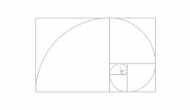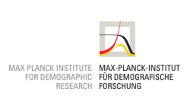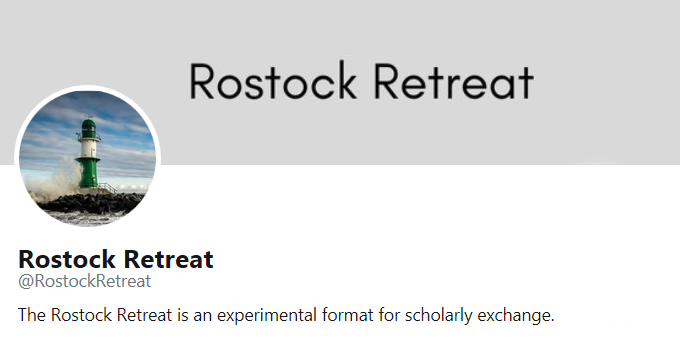This is the page of the Rostock Retreat on Causality, which took place in July 2018.
Please click here to view the current retreat.
program
| 09:30 | Registration opens |
| 10:00 | Administrative introduction (Auditorium) |
| 10:30 | Introduction by the organizers (Auditorium) |
| 11:00 | Getting to know each other activity (Auditorium) |
| 11:30 | Lunch break |
| 13:00 | Keynote Lecture I: Stephen L. Morgan, 'Causality in the Social Sciences: Where are we now, and where are we headed?' (Auditorium) |
| 14:30 | Coffee break |
| 15:00 | Causality challenge (Auditorium, followed by Lexis room, Room 200, Cafeteria and Dining room) |
| 16:30 | Causality challenge discussion (Lexis room and Cafeteria) |
| 18:00 | Dinner (Cafeteria) |
| 19:00 | Evening Lecture I: Jon Michael Gran, 'Causal inference in non-Markov multi-state models' (Auditorium) |
| 09:30 | Opening of the day followed by Poster Presentation Session I. (Cafeteria) |
| 10:30 | Keynote Lecture II: Miguel Hernan, 'Causal inference from observational data: emulating randomized experiments' (Auditorium) |
| 12:00 | Lunch break |
| 13:30 | Poster Presentation Session II (Cafeteria) |
| 14:30 | Coffee break |
| 15:00 | Causality challenge (Auditorium, followed by Lexis room, Room 200, Cafeteria and Dining room) |
| 16:30 | Causality challenge discussion (Lexis room and Cafeteria) |
| 18:00 | Dinner (Cafeteria) |
| 19:00 | Evening Lecture II: Caren Frosch, 'Learning and reasoning about causal structure: A developmental perspective' (Auditorium) |
| 09:30 | Opening of the day followed by Poster Presentation Session III (Cafeteria) |
| 10:30 | Keynote Lecture III: Andrea Weber, 'Identification of causal parameters in a Regression Discontinuity Design' (Auditorium) |
| 12:00 | Lunch break |
| 13:30 | Poster Presentation Session IV (Cafeteria) |
| 14:30 | Causality challenge (Auditorium, followed by Lexis room, Room 200, Cafeteria and Dining room) |
| 16:00 | Causality challenge discussion (Lexis room and Cafeteria) |
| 16:30 | Piazza session (Cafeteria) |
| 18:00 | Dinner |
| 19:00 | Evening Lecture III: Christian Loew, 'Causation and its Place in the Physical World' (Auditorium) |
| 20:00 | Optional get together in the inner city |
call
The Rostock Retreat on Causality will bring together methodological and applied researchers to discuss causal reasoning, methods for causal inference as well as applications in empirical research. The Retreat will be held on 2-4 July 2018.
key note speakers
- Keynote lectures by leading experts on causal inference.
- Miguel Hernán, Harvard T.H. Chan School of Public Health hsph.harvard.edu
- Andrea Weber, Central European University economics.ceu.edu
- Stephen Morgan, Johns Hopkins University soc.jhu.edu
- Presentations on emerging perspectives on causality.
- Jon Michael Gran, University of Oslo www.med.uio.no
- Caren Frosch, University of Leicester www2.le.ac.uk
- Christian Loew, University of Luxembourg wwwen.uni.lu
- Hands-on data challenges
- Presentations of ongoing research projects by the participants
description
The Rostock Retreat is an innovative format for scholarly exchange that is designed to encourage communication and collaboration on specific themes in a relaxed atmosphere. The second Retreat will focus on causal inference and will be conducted in July 2018, 2nd to 4th, at the Max Planck Institute for Demographic Research, Rostock. The main goal of the 2018 Rostock Retreat is to bring together methodologists and applied researchers from all population and social sciences, and to foster the use of formal approaches and formal reasoning to assess causal relationships. The Retreat is built around the most active and hotly debated research methods in causal inference. A series of keynotes by leading experts, lectures on perspectives on causality, and group activities will inspire new ideas and strengthen the methodological skills of the participants. Focusing on interactions of the participants will help provide feedback and reflections for individual research projects. Postgraduate students are welcome as are experienced scientists.
applications
Application deadline is 28 February 2018.
If you want to participate in the Retreat, please send an application to rostock-retreat@demogr.mpg.de. The application should be a single PDF-file including (1) a two-page CV and (2) one or two pages describing a research project you want to advance by participating in the Retreat. Applicants should have received a PhD, or should be enrolled in a PhD program. Please get in touch if this does not apply to you but you are interested in participating. Participants are expected to verbally present their research with the aid of a poster.
Directly before the Retreat will be a course on causal inference with graphical models, taught by Ilya Shpitser. A separate application is required for the course, but please state in your Retreat application if you are also applying for the course.
no fees
There are no tuition fees for the Retreat. Participants are expected to pay their own transportation and living costs. For students or junior scientists with financial limitations there will be a limited number of travel stipends, covering travel and accommodation. Please state in your application if you also want to apply for a travel stipend.
about
The Rostock Retreat is organized annually at the Max Planck Institute for Demographic Research, Rostock, on the coast of the Baltic Sea in Northern Germany. The Retreat is an innovative format for scholarly exchange that is designed to encourage communication and collaboration on specific themes in a relaxed atmosphere.


